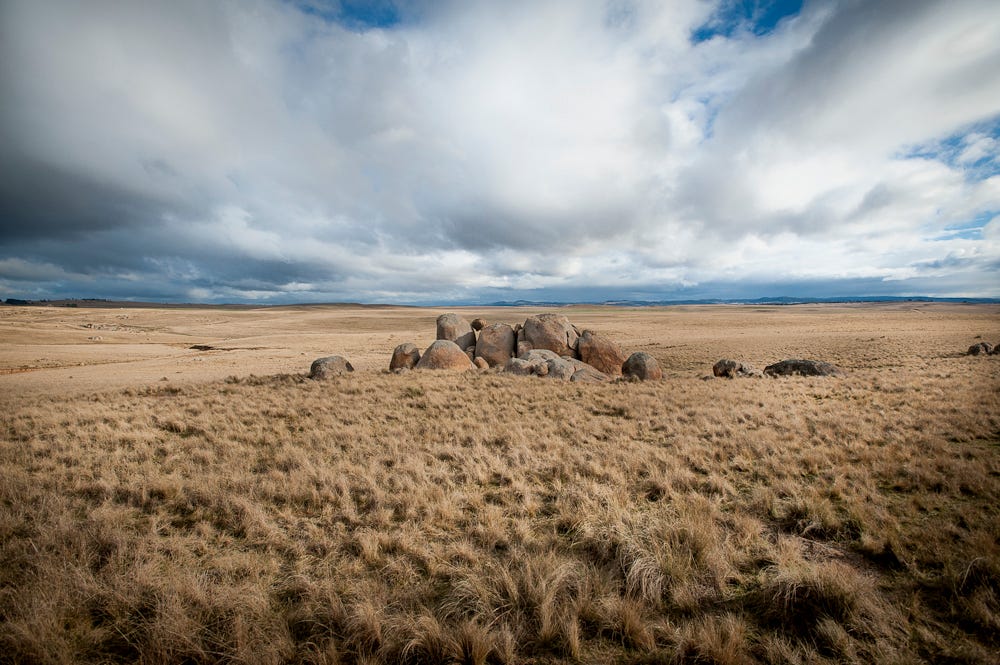The unnamed narrator of Charlotte Woods’ Stone Yard Devotional flees her marriage and her career as a species conservationist in despair for a small, cloistered convent on the bleak, treeless Monaro Plains in New South Wells, near the small town where she grew up. She lives among the mostly silent nuns, sharing their chores, and, though the opposite of religious, attends mass and the hours of office with them.
Reflecting on the life she left behind, she concludes, “At every step of my every attempt I have only worsened the destruction. Every email, meeting, press release, conference, protest. Every minuscule action after waking means slurping up resources, expelling waste, destroying habitat. … Whereas staying still, suspended in time like these women, does the opposite. They are doing no harm.”
She hopes for such stillness herself, but the familiar landscape, the graves of her parents nearby, her thoughts often wrestle with the past, particularly her part in bullying a girl named Helen Parry, now a nun, who is a world-renowned climate activist.
Three things happen in Stone Yard Devotional. The bones of Sister Jenny, a nun who disappeared after abandoning the convent twenty years ago to run a women’s shelter in Bangkok; Sister Helen Parry brings the bones to the convent for burial; and there is a plague of mice.
The mice are “Rooting through the chicken feed and the lettuce bed and the compost bucket; running up bedposts and bare legs; spewing from cars and church organs; waves of small bodies scurrying across paved roads like “a wide river of silver water.” Where there aren’t mice, there are their effects: electrical cords and bags of flour torn apart; magpies dead after eating the poisoned carcasses; a nest inside an old piano, woven from pieces of felt chewed off its hammers. The sounds of their scratching in the walls “like dried leaves falling.” (The Guardian)
The women carry on. That is, all of them but Sister Helen, who separates herself from them, constantly on her cell phone directing her many causes from afar.
When narrator tries to apologize to her for the past—
Nope. I’ll let you find out how that goes yourself.
I loved this quiet, contemplative novel.
Sometimes I feel the urge to flee my own life, not in despair but because its richness and complexity can make it hard for me to think.
Sometimes I feel like I need to go away for a while to remember who I am.
Stone Yard Devotional offers no answers, just a beautifully rendered situation that grounded me in my life and in my self.






I’m so glad you like the book. I also feel the same as you. It’s strange how sometimes you have to walk away from your life to know who you are! Am reading pico Iyer’s book about his annual time in a Catholic monastery in Big Sur
I know what you mean :-)